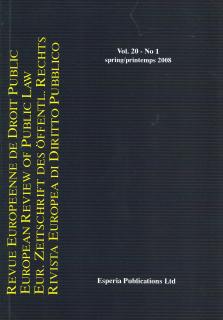
The Resources of European Security
Edoardo Chiti
Professor at the University of La Tuscia, Italy
The report examines the regulatory framework, the organisational arrangements, the administrative powers, and the instruments of individual protection of European security. For each subject, the European security regulation is described and compared with other European sectors and with national security policies. The regulation of European security is somehow contradictory. It is a quantitatively significant regulation, but its full effectiveness is jeopardised by the relatively low degree of its normative implementation at the domestic level. The EU security administration is characterised by a peculiar combination of transnationalism and supranationalism, which responds to the rationale of strengthened transnational cooperation under light EU coordination. The relevant administrative powers are distributed among the various competent bodies on a case-by-case basis, although final administrative powers are usually granted to national public powers. Individual protection mainly relies upon the instruments envisaged by domestic law. The reconstructed EU security regulation has both similarities and differences with other EU sector regulations and with national security policies. The move towards closer integration in the field by means of enhanced coordination and exploitation of national resources certainly matches the objectives of political realism and pragmatism. But a number of issues still need to be adequately addressed.





















